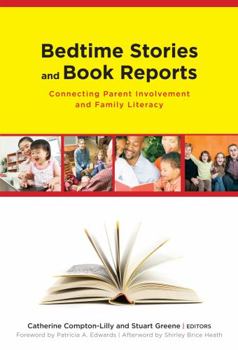Bedtime Stories and Book Reports: Connecting Parent Involvement and Family Literacy
(Part of the Language and Literacy Series)
Select Format
Select Condition 
Book Overview
This book brings together the newest research on parent involvement and family literacy--two fields that rarely exist in conversation with one another--and asks this question: How do race, class, gender, and history serve as potent factors that shape children's school experiences? Each chapter offers portraits of real families and schools that illustrate parents' awareness of their children's school progress, their perceptions of teachers, and their involvement in teaching their children life lessons that extend beyond school achievement. Translating theory into action, this resource:
Extends conversations about parent involvement and family literacy across time and multiple spaces--home, school, church, and community. Challenges accepted "deficit" notions of families by listening to parents' counterstories of how they are involved with their children both in and out of school. Highlights the significance of race, class, gender, religion, sexual preference, and history in literacy learning and schooling.Format:Paperback
Language:English
ISBN:0807751359
ISBN13:9780807751350
Release Date:December 2010
Publisher:Teachers College Press
Length:176 Pages
Weight:0.60 lbs.
Dimensions:0.6" x 6.1" x 8.9"
Customer Reviews
0 rating





